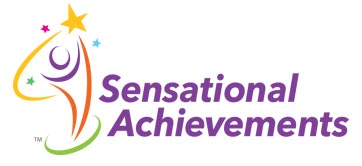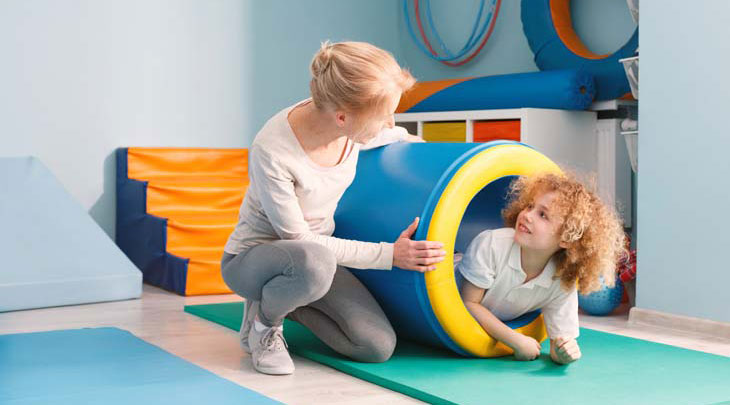Children with sensory processing disorders…
have difficulty receiving and interpreting sensory information from their bodies and the environment, making it difficult for them to develop appropriate responses and effectively interact with the world around them. This can impact a child’s behavior, ability to learn new skills, development of age-appropriate motor skills, and affect peer interactions. Visit the Sensory Processing Disorder Foundation for more information.
Some signs that indicate your child may have sensory processing disorder include experiencing tactile or auditory sensitivities, functional visual skill/ocularmotor deficits, fear of movement or heights, clumsiness, lack of coordination, poor self-help skills, poor organization/attention/self regulation, difficulty with fine motor or handwriting tasks, and difficulty with/avoidance of age-appropriate play and gross motor activities.
Occupational therapy with a sensory integrative approach
– Improves the ways in which a child organizes sensory information to effectively respond to the demands of their environment.
– Occurs in sensory-rich gym environments with specialized suspended equipment.
– Teaches a child how to explore and engage in sensory experiences that foster appropriate responses to sensory information, coordination, body control, and visually-guided movement.
– Improves adaptive responses to generalize to the child’s everyday activities and allow them to participate in meaningful activities such as playing with their peers, learning, and developing independence in life skills.
Fine Motor and Handwriting Services
Target underlying factors impeding development of age-appropriate fine motor and writing skills. We use a multi-sensory body-based approach to improve hand/finger strength, coordination and finger dexterity, legibility, sizing, spatial organization, and planning/sequencing of thoughts and ideas.
If you’d like to learn more about an evaluation please Contact Us or call us 203-200-7256.









